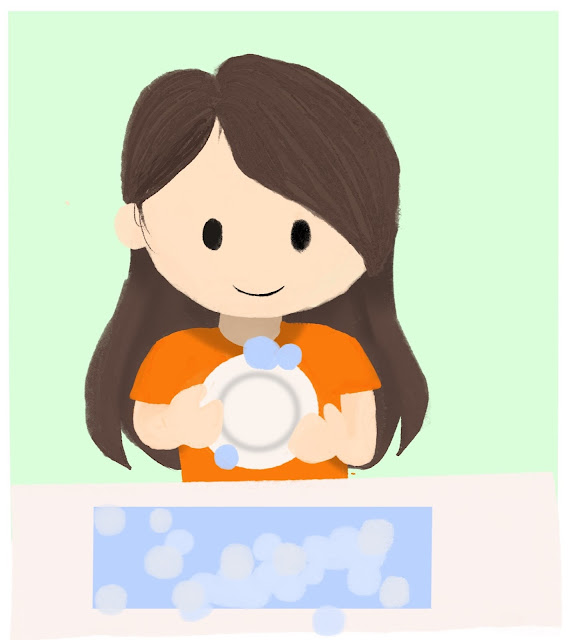“Online distance learning: A home-school
partnership”
SunStar Davao, July 18, 2020
As we welcome this school year, most teachers, students,
and parents are preparing for the new normal with the much talked about online
distance learning (ODL).
Synchronous learning is an online
or distance education done in real-time. In contrast, asynchronous learning
happens through online channels without real-time interaction.
Both my children
had an early taste of ODL when face-to-face classes were called off because of
the pandemic during their school’s last quarter. This July, my eldest daughter,
a freshman in a Manila university began her college life through ODL in the
comforts of our Davao home with her blockmates and professors from all over the
Philippines and even as far as Qatar.
Underlying issues
Last week, I joined Dr. Queena Lee-Chua’s Zoom
webinar “Making Online Distance Learning Work” organized by Anvil Publishing. For
the past three months, she has been doing a series of webinars on this topic for
private and public-school teachers, parents, and students.
Dr. Queena graduated from Ateneo de Manila
University in 1987, with a degree in BS Mathematics, summa cum laude. In
addition, she has a doctorate in clinical psychology from the same university,
where she is a professor.
“Some parents are anxious now with ODL because
the issues regarding their child’s learning have been underlying. And this
pandemic has forced them to confront,” Dr. Queena says.
These issues include lack of discipline;
distractions/indiscriminate gadget use; parent-child conflict over discipline
and communication; learning independently; competition; “cheating”; among others.
Stress, fear, and anxiety brought about by the
pandemic are additional issues as well.
“We cannot avoid stress, but we can learn to
manage it. Fear is normal in a pandemic, but parents must calm their children
and themselves by focusing on what they can do such as brainstorming on physical
study space and routine, honing skills, helping frontliners, and caring for
each other,” reminds Dr. Queena.
Making ODL work
Dr. Queena emphasizes that kids should have a
set routine for sleeping time, waking time, classes, exercises, chores, etc.
during this ODL.
“Discuss a doable routine for all. Structure
the home environment to make motivation a habit,” the mom-of-one advises. She
adds that “amid this uncertainty, structure provides a sense of safety. And, with
good discipline, children grow up feeling confident, conscious of their
actions, and responsible for them.”
The multi-awarded educator and author clarifies that
it is not necessary for all the students to have individual gadgets and computers. In fact,
this is a good time for the kids to learn how to share their gadgets and computers and do
self-regulation.
Parents may also assign a certain gadget or computer for
school purposes only so kids will not use them without control. If this is not an
option, set a timer/user apps as reminders to stop surfing or go offline. Likewise, one
may download and print offline materials for offline study to avoid using
the gadget or computer for too long.
In her bestselling book, “Helping Our Children Do
Well in School”, Dr. Queena has always stressed the importance of
creating a conducive environment for study. She
suggests that if possible, the child must have his or her own desk and minimize
distractions.
If limited space is a constraint, using earphones
during ODL can also work and create a semi-private space. “The
environment may not be ideal, but it should be workable for all,” she says.
Support from home is crucial
In another Zoom webinar conducted by Dr. Queena on “Establishing Online Home-School Partnership”, she discusses the role of the
parents on ODL.
“Parents should not do the assignments for the
kids. They should not sit beside the child and not take notes for the child.
Instead, they should guide their children regarding skills, mindset, attitudes,
and behavior,” shares Dr. Queena.
“Ideally, the parent leaves the child alone and
works in another room. But, the parent should check on the child from time to
time to see if the child is focusing on the subject, or if the child is doing
YouTube. The role of the parents is not to give the content but to help their
children study well. There is a difference,” she continues.
In general, Dr. Queena explains that the younger
the child (especially preschool to Grade 3), the more support is needed.
Teachers and parents provide the “scaffolding”. However, for high school and
college students, developed good study habits should grow in autonomy.
“We must teach our children that effort is more
important than whatever innate ability he or she may possess. Encourage
persistence and explain that mistakes are a natural part of learning. Focus on
the positive. Instead of saying they are smart, tell your child that you are
proud that he or she worked hard and did their best,” she declares.
“Of course, nothing beats face-to-face learning.
However, a strong home-school partnership can make online distance learning
work,” Dr. Queena enthuses.
Dr. Queena Lee-Chua's books are available
online through bit.ly/QLCBooks. For
assistance, please email onlinesales@anvilpublishing.com.
Big thanks to Dr. Queena Lee-Chua, Anvil
Publishing, Ateneo SALT head Fr. Johnny Go, Jesuit Basic Education Commission
(JBEC) head Fr. Ari Dy, and Julie Tiu for making this article possible.
Digital artworks for this issue were all done by my
12-year-old twin nieces. Awesome job, Jorgy and Missy!
E-mail the author at
mom.about.town.dvo@gmail.com. Visit http://momabouttowndavao.blogspot.com/.















No comments:
Post a Comment